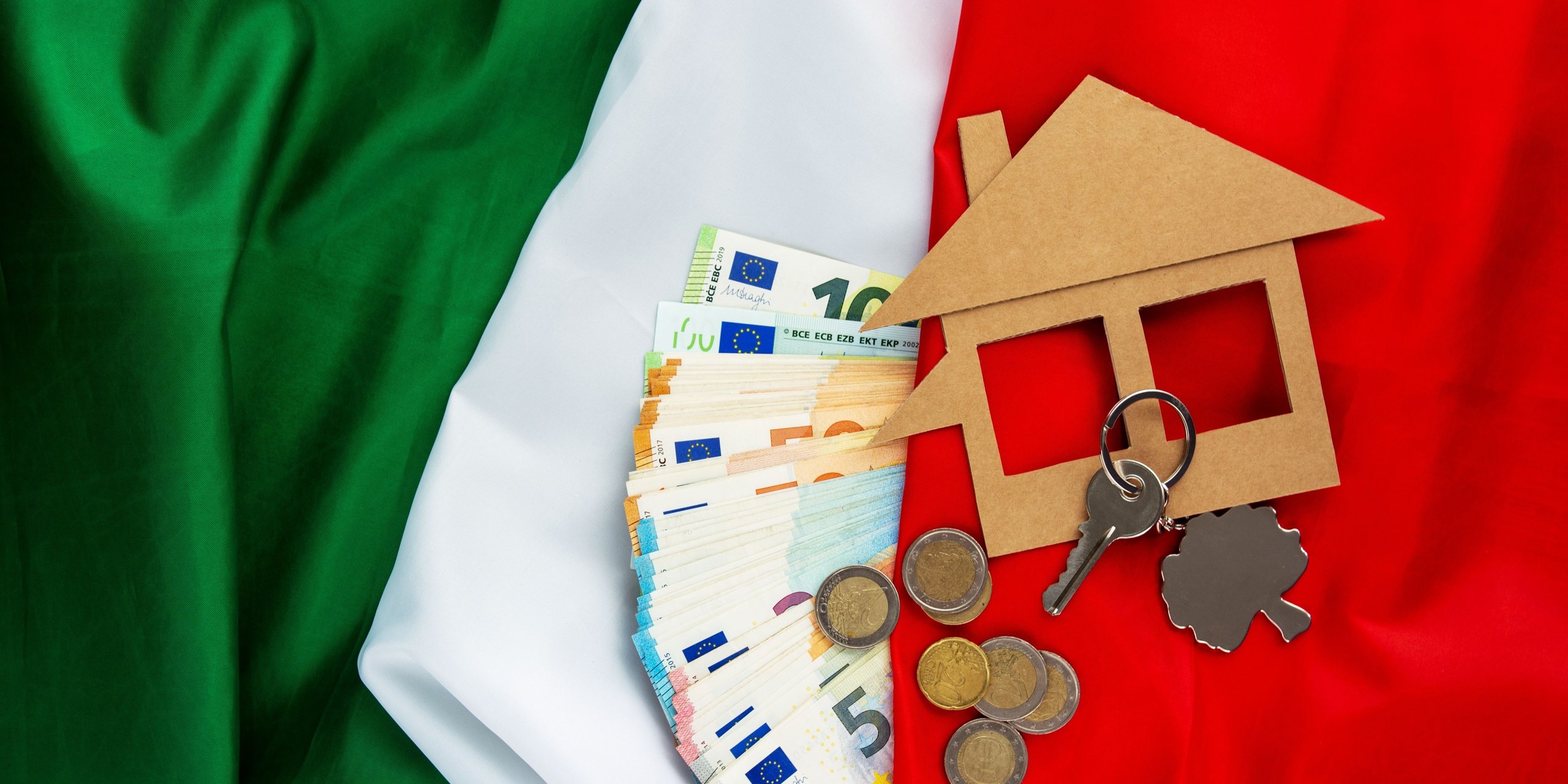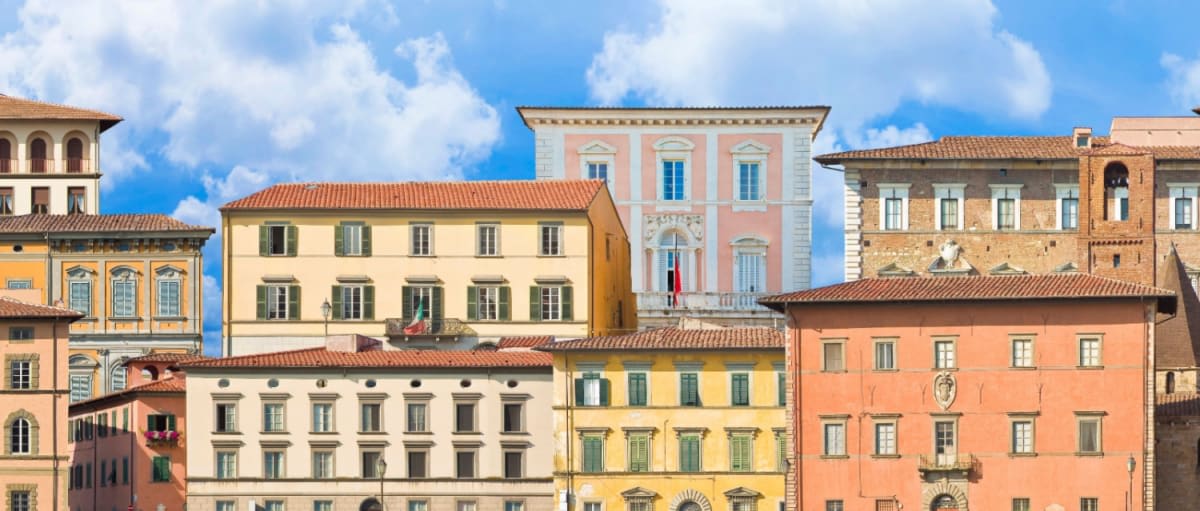Hiring the right legal expert is the first step to buying property in Italy with confidence. Here’s how to find a qualified lawyer, what they’ll do for you, and how much it’ll cost.
Buying a home in Italy is an exciting move, whether you’re planning to retire, relocate, invest or simply enjoy longer holidays. But before you commit to a property, it’s essential to engage an experienced Italian property lawyer.
Unlike in the UK, where a solicitor manages the legal process end-to-end, Italy has a more fragmented system where notaries, estate agents and lawyers all play different roles. This makes it all the more important to have an independent lawyer who works solely for you.
Contents
Choosing the right lawyer
The vast majority of international buyers have the legal right to purchase property in Italy. However, navigating the legal landscape, in Italian, can be challenging. Engaging your own qualified, bi-lingual lawyer should ensure that your purchase is compliant, protected and properly structured from the start.
Many buyers mistakenly assume that the notary provides legal protection. In fact, the notary’s responsibility is to confirm that the transaction is legally valid, not to protect your interests specifically. The same goes for estate agents or developers who may offer in-house legal services. Since their continued working relationship with that estate agent may depend on your purchase, they cannot be seen as truly independent.
You should also bear in mind how confident you are in your lawyer’s abilities. As one Your Overseas Home reader said about a previous bad experience: “The estate agent was clearly at fault in my transaction, but my small town lawyer wasn’t strong enough to stand up to his legal team.”
At Your Overseas Home we will introduce you to specialist property lawyers in Italy.
Make contact with a trusted lawyer in Italy
How your lawyer will help you
Legal checks: Verifying property title, ownership, debts and compliance with building regulations.
Planning advice: Guiding you on whether your intended use (holiday let, B&B, renovation, etc) is permitted.
Tax and inheritance: Explaining local property taxes, ongoing costs and how inheritance laws apply to your assets.
Translation: Ensuring you fully understand Italian-language legal documents.
Power of attorney: Signing contracts on your behalf if you can’t be in Italy in person.
Visa support: Assisting with residency or visa requirements, if applicable.
It’s wise to engage a lawyer even before you start viewings. That way, you’re legally prepared to make an offer quickly when you find the right property.
Notary vs lawyer: who does what?
| Task | Notary | Independent Property Lawyer |
|---|---|---|
| Verifies legal validity of sale | ✔ | ✔ |
| Checks property title, debts and planning compliance | ✘ | ✔ |
| Represents buyer’s interests | ✘ | ✔ |
| Advises on tax, inheritance and rental law | ✘ | ✔ |
| Drafts preliminary and final contracts | ✔ (final) | ✔ (both) |
| Provides translations and explanations in your language | ✘ | ✔ |
| Acts under power of attorney | ✘ | ✔ |
Note: Notaries are legally required for all property sales in Italy but do not offer buyer-specific legal advice.
Costs and fees involved
Legal fees for property purchases in Italy vary by law firm and complexity of the transaction. Most lawyers will offer an estimate after an initial consultation, based on the scope of work required.
Legal fees: Typically 1%–2% of the declared property price, or a flat fee. Fees are subject to 20% VAT.
Notary fees: Usually around 1% of the property’s declared value, depending on location and complexity.
Translation or additional services: Some firms may include these in their fee, while others charge separately.
Even if you’re confident in your Italian, it’s worth budgeting for translation or dual-language legal support to avoid costly misunderstandings.
The role of your lawyer
From the moment you decide to buy, your lawyer will guide you through each legal step of the process.
This begins with obtaining a Codice Fiscale (Italian tax code), issued by the Agenzia delle Entrate. Your lawyer can apply on your behalf using your passport and completed form.
Once you’ve found a property:
- The lawyer will also help coordinate payments, ensure tax obligations are met, and hand over the keys once the transaction is complete.
Due diligence begins. Your lawyer will verify the seller’s ownership, confirm the absence of debts or mortgages, and ensure the property meets planning regulations. They’ll also identify any shared access rights or easements.
If renovations have been carried out in the past 10 years, your lawyer will confirm they were done legally and check for relevant certificates.
A proposta di acquisto (offer to purchase) is prepared and signed. This indicates your commitment to buy but does not legally bind the seller yet.
Once the seller agrees, a contratto preliminare (preliminary contract) is drafted. This obliges both parties to complete the transaction by a set date and includes penalties if either side backs out.
Finally, the atto di compravendita (deed of sale) is signed in front of a notary. If you’re not in Italy, your lawyer can do this using power of attorney.
Make contact with a trusted lawyer in Italy
FAQs – getting a property lawyer in Italy
No. The notary is impartial and protects the transaction’s legality, not your personal interests. A property lawyer acts solely for you, checking contracts, risks and title issues before you commit.
That depends. Some firms – especially those often acting for international clients – offer both services, but property lawyers typically focus on the purchase itself. Visa applications are often handled by immigration specialists or separate legal teams.
Fees vary, but expect around 1–2% of the purchase price, or a fixed fee for straightforward purchases. Always confirm what’s included and whether VAT (IVA) applies.
It’s strongly recommended. Buying property involves complex legal terms, and clear communication helps you fully understand contracts, risks, and obligations before signing.








